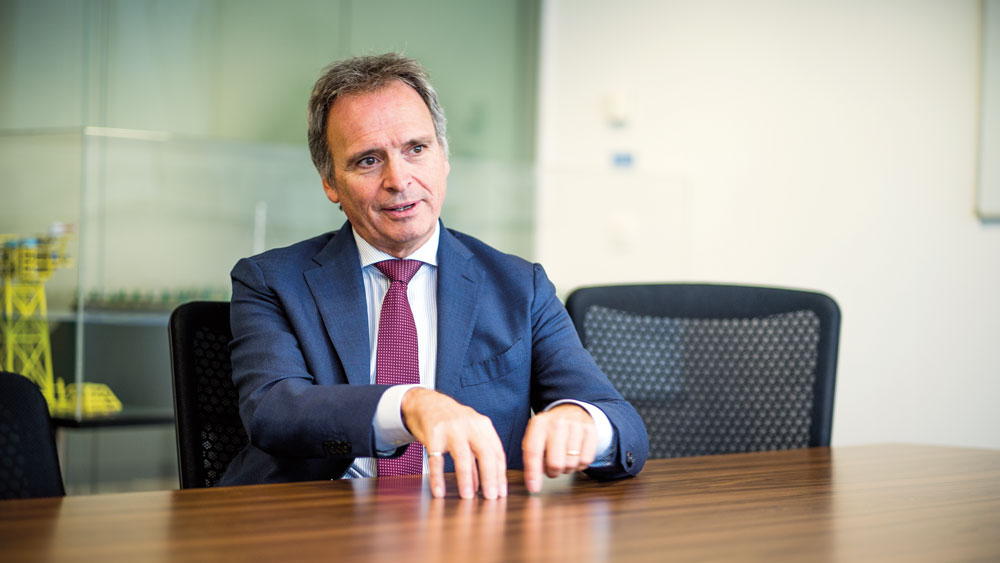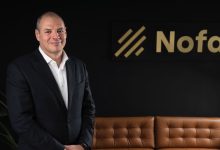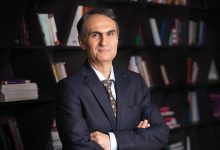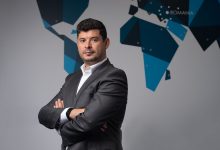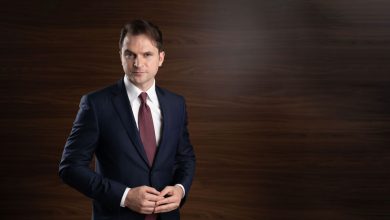Mark Beacom: Black Sea Oil & Gas to Start Production in First Half of 2021
Black Sea Oil & Gas SA (BSOG) is a Romanian based independent oil and gas company, targeting exploration and development of conventional oil & gas resources. Current portfolio is made up of XV Midia Shallow Block and XIII Pelican Block concession in the Romanian Black Sea where it is the operator and holds a 70% interest.
We are talking with Mark Beacom – CEO, Black Sea Oil & Gas, and Vice Chairman, Romanian Black Sea Titleholders Association (RBSTA), on business strategy and future plans of the company in Romania.
During the past 30 years, Mark Beacom has held increasingly senior operational leadership and managerial positions internationally in companies both public and private including Director General of Midia Resources SRL, the Romanian subsidiary of Sterling Resources Ltd., President of Carthage Energy and its subsidiary Carthage Hydro, Vice-President of Petrokazakhstan, COO of Western Facilities, and President and Founder of Croft Offshore Oil Ltd. He holds a Bachelor of Science degree (Honours) in Mechanical Engineering from Queens University in Kingston, Ontario and a Master of Business Administration degree from the London Business School in the UK.
Dear Mr. Beacom, you have 30 years’ experience in senior operational leadership and managerial positions in the oil and gas industry worldwide. How did your ‘journey’ in Romania begin?
Mark Beacom: BSOG’s predecessor was a company called Sterling Resources. Sterling, via its Romanian subsidiary Midia Resources, had made a couple of discoveries in the Black Sea in the mid-1990s and early 2000s. But, during this time, Romania was embroiled in a border dispute with Ukraine over parts of the Black Sea. Sterling, which was awarded a concession by the Romanian Government that extended into the disputed area, found itself in the heart of the dispute, and sitting on two discoveries, it could not develop. After having worked in many countries around the world that faced challenges to advance, I was contacted by the chief executive of Sterling at the end of 2010, who said: “If you liked Kazakhstan, you will love Romania.” All disputes regarding the concession were eventually resolved by the end of 2011 and I remained in Romania to oversee our company’s efforts in the advancement of our exploration and development activities.
How would you describe the general development of the offshore activity in Romania compared to other regions?
Mark Beacom: Although Romania has a past very rich in oil and gas exploration and production activities the offshore is highly unexplored and vastly underdeveloped. As the first project to be developed offshore Romania in 30 years we continuously found ourselves to be at the forefront of trying to overcome blockages or gaps in the regulatory and legislative arenas. After working to establish the regulatory and legislative cornerstones together with our offshore association, RBSTA, and going through so much on our own initiatives over the past nine years, I believe future offshore investors will have it much easier to get through the development process than we did. We found the dialogue with the authorities on the regulatory front very positive and often a matter of shedding light on unclear issues, and our interlocutors receptive. Things got trickier in the legislative arena, where we failed to see a resolute political will to get matters fixed. Romania sits in a strategic, unique position in all of Europe, and it needs the right framework to propel it to greatness and encourage development. In spite of the many challenges to development that are inherent to working in Romania, including, most unfortunately, fiscal and regulatory instability, we are still committed to the Midia Gas Development project and are keen to explore other opportunities as well assuming there is a restoration of fiscal and gas marketing provisions to those that were promised at the time of investment.
A couple of years ago you said Black Sea Oil & Gas would be the first company to start offshore gas production in Romania. What is the current status of your activity? When do you expect gas production to actually start?
Mark Beacom: Getting to the Final Investment Decision (FID) in February 2019 was a long road, involving making sure the technical reserves were in place and quantifiable, followed by a number of studies surrounding assets and infrastructure including Conceptual Studies and FEED, offshore surveys and other works, purchasing the land, and establishing an off-take agreement with Transgaz. Additionally, we had to find a gas buyer, an EPCIC contractor for all the activities such as drilling the wells, fabricating the offshore platform, laying the pipelines and building the gas treatment plant as well as securing debt financing for the project. And last but not least, we had to get through the regulatory process, a first for Romania in relation to the offshore. Only when all milestones were reached, from the technical to the financial, and no stone was left unturned, could we confidently secure FID. We are now currently undertaking all the post FID activities such as building the offshore platform at GSP’s Agigea shipyard, commencing site works for the Gas Treatment Plant at Vadu and fabricating all major equipment such as 126km of coated pipeline, compression and power generation units, communication and control systems, MEG and TEG units etc. If all goes well, we will be drilling the development wells commencing in the 2nd half of 2020 and aim to start production in 1H/2021.
Please tell us more about the Midia Gas Development Project.
What is this project’s objective?
Mark Beacom: To be the first offshore project in over 30 years to safely and environmentally responsibly develop offshore gas resources in Romania’s Black Sea thereby kick starting a game changing industry for Romania that will benefit Romanian workers, suppliers, investors, the economy and the community.
Who are your partners in this project?
Mark Beacom: BSOG holds a 70% stake in the project as operator and we have PetroVentures Resources SRL and Gas Plus Dacia SRL having a 20% and 10% stake respectively.
What is the total investment in exploration and appraisal so far?
Mark Beacom: From commencement of the Concession the Titleholders have spent together roughly USD 200mm on exploration and appraisal activities.
What would be the level of production from Ana and Doina gas fields?
Mark Beacom: Initial plateau should be in the order of 1 Bcm pa.
What about gas sales agreements?
Mark Beacom: BSOG and its partners entered into a reservoir depletion style contract with Engie.
Is there any possibility to export some gas volumes?
Mark Beacom: As BSOG and its partners sells the gas at the outlet of Gas Treatment Plant it is for Engie, our buyer, to decide how to move the gas to market. The MGD project should deliver about 10% of Romania’s consumption (about the same level that is currently being imported) so gas would likely be sold within Romania to the extent there is a market for this gas as Engie is a major energy trader in the country.
How do you comment ExxonMobil’s decision to sell the business held in Romania (and thus the concession on the Black Sea offshore block XIX Neptun)?
Mark Beacom: We cannot comment on individual companies’ motivations but, if true, clearly it is not a healthy sign to have major investor exit a country.
Does the final investment decision of BSOG (US investment fund Carlyle) for MGD Project remain firm?
Mark Beacom: Once BSOG was given the go ahead at FID in February 2019 the project remains firm. We are still, however, pursuing, in parallel, resolution of all those provisions introduced at the end of 2018 (Supplemental Tax, GEO 114) that are hostile to the investment.
Even in the context of ExxonMobil’s decision, which occurred after the public announcement of BSOG on the decision to continue the investment?
Mark Beacom: Although all Titleholders working concessions in the offshore are fully aligned on the view that those provisions introduced in late 2018 were highly negative for encouraging investment, BSOG and its partners took the view that we should proceed with development and, at the same time, fight to restore our rights and the viability of the investment.
What problems are you facing in the development of this project – in terms of financing, of the activity of entrepreneurs, contractors, workforce etc.?
Mark Beacom: Working with contractors that are recovering from a severe downturn in the industry has presented a bigger challenge than anticipated.
Are you satisfied with the current Offshore Law No. 256/2018 (footnote – on certain measures necessary for the implementation of petroleum operations by titleholders of petroleum agreements regarding offshore petroleum blocks)? If not, what should be changed or improved in your opinion?
Mark Beacom: The Offshore Law passed in November 2018 was very helpful in establishing a regulatory framework in order to allow offshore gas developers a road map for moving through the regulatory process. Without such legislation it would have been very difficult for BSOG and its partners to have taken FID in February 2019. However, added to the legislation was the insertion of Supplemental taxation which was hugely onerous, very regressive in structure, completely outside what other offshore compatible regions have in place and, as a single piece of legislation, will likely ensure that the Black Sea in Romania does not get developed. BSOG moved forward taking FID on the basis that this provision, along with GEO 114, will be revoked and we still believe that this will happen otherwise the country will never see the ground changing benefits that the development of the Black Sea can offer.
How did you finally overcome the regulatory situation you had to face during this period?
Mark Beacom: BSOG and its partners have committed themselves to developing this offshore project. After continuous efforts and investments over the last 10 years, we initially targeted taking FID in 2017 but were held back by the lack of a clear regulatory framework for the offshore operations. The regulatory blockages were resolved (though not entirely) by the offshore law passed in late 2018. Regrettably other changes have also occurred, both in the Offshore Law and GEO 114, such as the imposition of very onerous changes to the fee structure and fiscal regime for offshore developments and constraints being imposed in terms of gas pricing and the free movement of gas. These unanticipated changes have had a very negative impact on the viability of this investment. Taking into account the amounts that have been spent to date on this concession, BSOG and its partners have, by taking FID, decided in good faith to commit to developing the project (with the view that 1st gas will be reached in Q1 2021), rather than terminating it. However, although we have committed to move forward with the development, we would also be seeking, in parallel, to restore all our rights with respect to the fiscal provisions, gas marketing and other regulatory issues that together are undermining the viability of developing gas projects in the Black Sea. We look forward to having a constructive engagement with the relevant authorities to seek resolution on these issues but do not exclude the possibility of pursuing a legal course of action should such engagement not result in a positive outcome.
What is BSOG approach to the most pressing environmental challenges related to the Black Sea Region?
Mark Beacom: Fortunately, this project inherently has a very small environmental footprint. There are only 4 wells which are producing almost pure gas, no liquids, from a very small platform that is unmanned. There is then a pipeline to shore that is installed under the beach and runs underground to the Gas Treatment plant which, due to the clean nature of the gas, requires very little in the way of facilities.
Recently, the board of the European Investment Bank has agreed on a new energy lending policy and confirmed the EIB’s increased ambition in climate action and environmental sustainability. Moreover, they have reached a compromise to end financing by the EU Bank for unabated fossil fuel projects, including gas, from the end of 2021. In your view, what impact would this approach have?
Mark Beacom: We certainly believe that gas production represents an important part of the solution to meet climate control ambitions in terms of being a transition fuel and also as a way to ensure energy is instantaneously available when renewables are not. It is far better for Romania, as they make the move to a carbon neutral world, that they use gas from Romania during that transition period rather than import from outside.
Are BSOG/the investment fund Carlyle interested in other development opportunities on the domestic market? Possibly in the acquisition of ExxonMobil’s business in Romania?
Mark Beacom: There are many rumours in the energy market including the assertion that BSOG is acquiring ExxonMobil’s interest in Neptun Deep. While we cannot comment on rumours, we can declare that BSOG and its partners are fully committed to developing the MGD project, offshore Black Sea and BSOG continues to seek viable business opportunities in the Black Sea region.
What are BSOG business strategy and future plans of the company in Romania for 2020 and beyond?
Mark Beacom: BSOG’s main goal is to complete the development of MGD and bring the MGD project to first gas in 2021. Other opportunities in the Black Sea region will be pursued to add value to our existing MGD project such as infrastructure tie backs of discoveries to MGD or as stand-alone additions to the company’s portfolio of investments.


